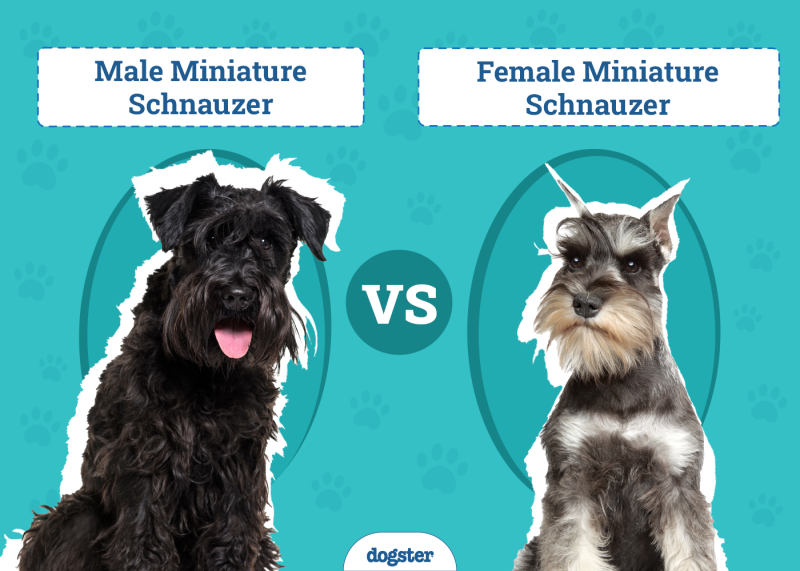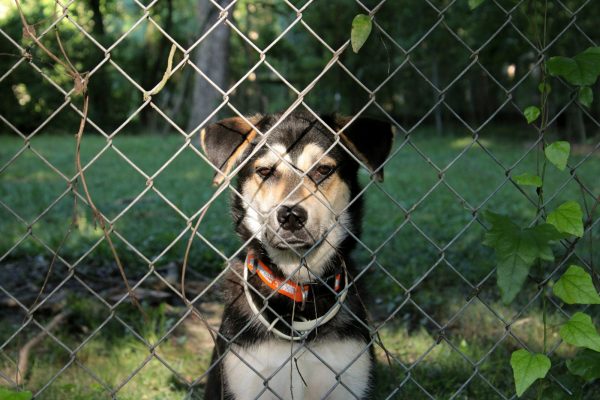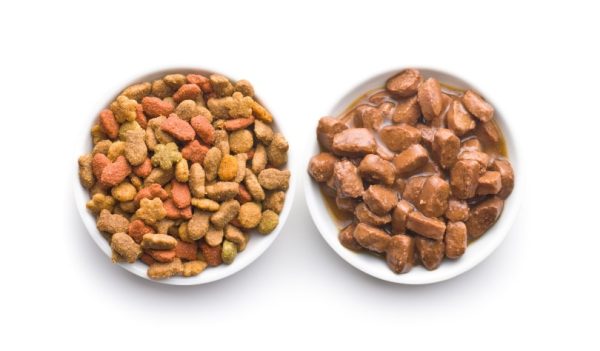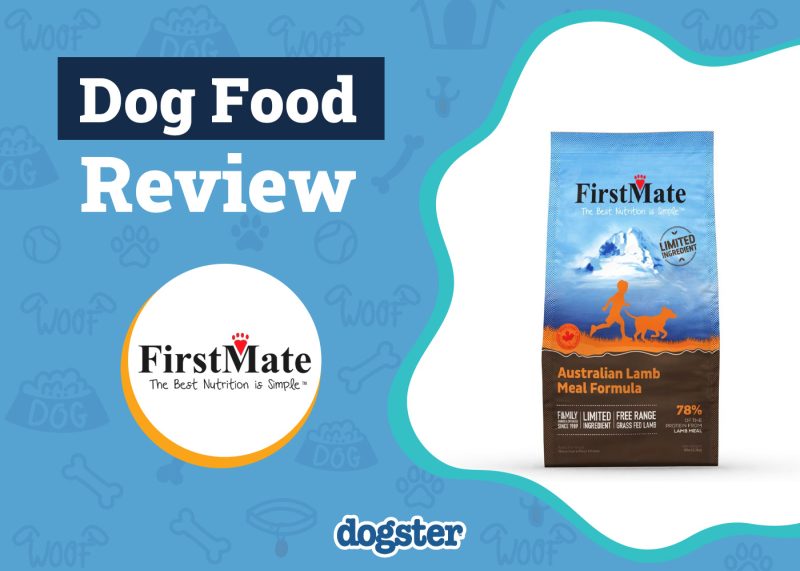In this article
Cornstarch is a commonly used ingredient in cooking and baking, often as a thickening agent for casseroles or soups. It is an excellent source of fiber and, as an added ingredient in many dog foods, is a wiser choice for dogs that have shown sensitivities to gluten or wheat. Although it is unlikely that even the greediest of canines would dive into a bag of cornstarch, as an ingredient on its own, it would not be advisable to allow your dog to consume too much, but it is a very safe, if not recommended, additive to a canine diet.

What Is Cornstarch?
Although closely related to corn flour and corn meal, which are milled from the whole corn kernel, cornstarch is a more refined product. Derived only from the endosperm of the kernel, without the tough outer coating, the resultant flour is more powdery in texture than corn flour, making it highly absorbent.
Cornstarch is a common ingredient in many dog foods, being a cheap additive to give form and bulk. Most commercial dog foods will contain some sort of bulking agent; without it, the result would be a clumpy, watery mess. Flour derived from wheat, oats and barley are the most common types of flour used in commercial dog foods, but corn flour, meal and starch are more prevalent in foods designed to be lower in allergens.
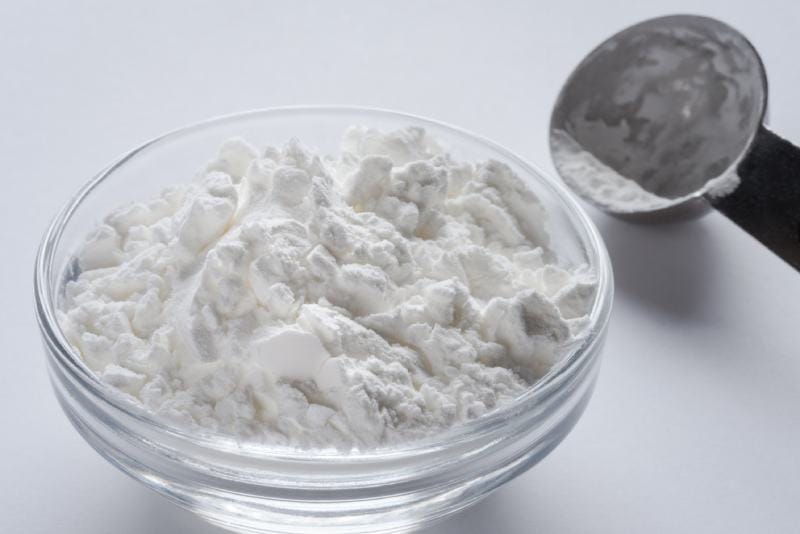
Is Cornstarch Safe for Dogs?
As a normal additive in dog food, absolutely. Although the actual percentage of cereals (grains, flour, etc.) will vary from food to food, all commercial diets must adhere to guidelines about content and labeling, which will not exceed the recommended daily allowance of these ingredients. Cheaper or lower quality foods may approach the higher end of these allowances, but will never exceed a safe amount. Care should be taken when using dog foods higher in cereal content as they are more likely to contribute to weight gain.
If you are looking to prepare your dog’s food at home, the need for a thickening or bulking agent tends to be less of a concern, and ingredients such as rice and vegetables are more commonly used to provide carbohydrates and fiber rather than cereals and grains.
There has been a popular movement over recent years to avoid wheat, flour and grains in dog food altogether. As humans have become more aware of wheat intolerances, there has been a departure from the use of cereals in dog foods to meet consumer demands, but much of the negative press is undeserved. Whilst there are dogs that suffer with intolerances to wheat, they are rare; most dog food sensitivities lie in the protein ingredient rather than with wheat.
There is also something of a misconception that ingredients like cornstarch are just “cheap fillers”. In this instance, the term may be true, but that doesn’t mean it should be seen as a negative. Cornstarch may be an inexpensive ingredient which adds bulk to a dog food, but, in the right proportions, is adding necessary bulk, as well as fiber and carbohydrates.

Cornstarch Benefits
As previously mentioned, there is more awareness about wheat intolerances in the general population, as well as in dogs, and corn is a readily available and inexpensive alternative to wheat. In particular, cornstarch, milled without the tough external shell, has even been found to produce less of an allergen response to dogs and cats sensitive to corn, making it an ideal ingredient for hypoallergenic diets.
Cornstarch provides necessary fiber and carbohydrates in an inexpensive, low allergen way.
Cornstarch Alternatives
If you are wanting to avoid cornstarch, or any cereal-based ingredient, you need to ensure that your dog’s food has a good source of fiber and carbohydrates. Brown rice, potatoes, sweet potatoes, carrots and green beans are great fresh ingredients, but if you are looking for a direct cornstarch replacement, tapioca flour or potato starch will add similar properties (such as thickening) for dogs with a proven corn allergy.


Conclusion
Cereals and grains have reduced in popularity in dog foods in recent years, but not necessarily for the right reasons. Generally, dog foods need some sort of “filler” which is a source of fiber and carbohydrates, and cornstarch is one such ingredient. The fact that they are inexpensive and add bulk to food does not necessarily mean they are just ways for a dog food manufacturer to produce more volume with less quality ingredients.
Allergies to wheat are not very common in dogs, corn allergies even less so. Cornstarch provides an excellent and inexpensive source of carbohydrates and fiber for commercial dog foods and, in this setting, should be considered completely safe. It has even been found to produce no allergic response in dogs that have a corn allergy, suggesting that it could be used as a cheaper additive to low-allergen dog foods.
See Also:
- Can Dogs Eat Marshmallows?
- Can Dogs Eat Sprinkles? Vet-Reviewed Nutrition Facts & Info
- Can Dogs Eat Nutritional Yeast? Vet-Verified Nutrition Facts & Info
Featured Image Credit By: Yuri Tynyankin, Shutterstock




